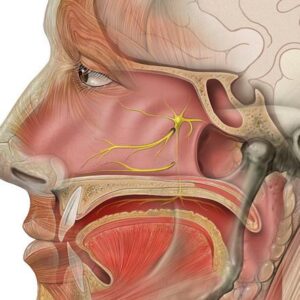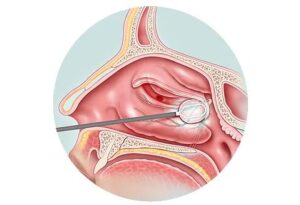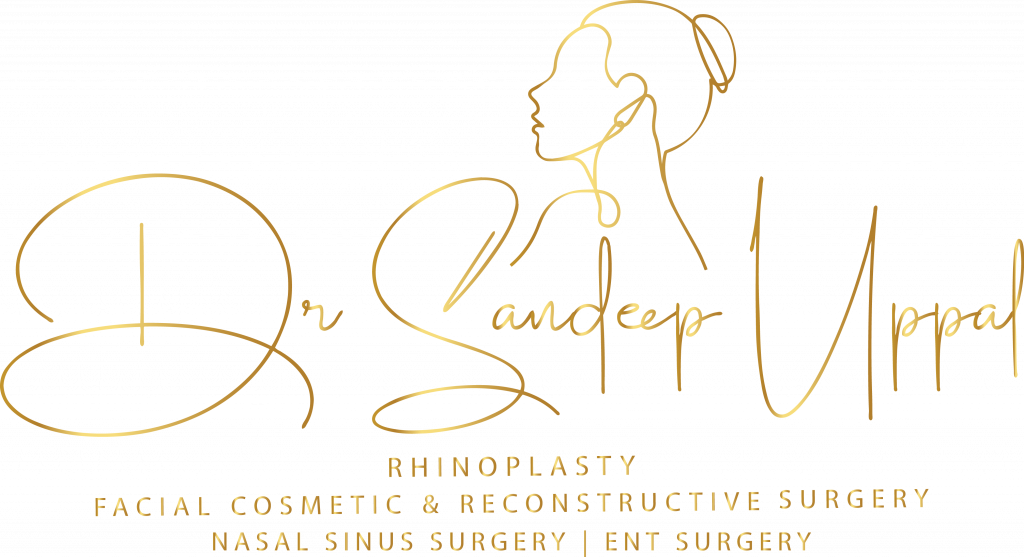POSTERIOR NASAL NERVE ABLATION

WHAT IS POSTERIOR NASAL NERVE ABLATION?
Posterior nasal nerve ablation is a minimally invasive procedure aimed at alleviating the symptoms of chronic rhinitis, particularly allergic rhinitis. The posterior nasal nerves are responsible for the excessive nasal secretions and congestion associated with rhinitis. By ablating (destroying) these nerves, the procedure reduces nasal hyperactivity and offers significant relief from symptoms.
WHY IS POSTERIOR NASAL NERVE ABLATION PERFORMED?
This procedure is particularly beneficial for patients who have persistent rhinitis symptoms despite trying other treatments. The main reasons for considering posterior nasal nerve ablation include:
- Chronic Nasal Congestion: Persistent nasal stuffiness that doesn’t respond well to medications.
- Excessive Nasal Drainage: Constant runny nose or post-nasal drip.
- Frequent Sneezing and Nasal Itching: Symptoms that interfere with daily activities and quality of life.
PROCEDURE DETAILS
The ablation is typically performed using a device that freezes the posterior nasal nerves. It may also be performed by ablating the nerves with heat energy. This process:
- Targets the specific nerves causing symptoms.
- Minimizes damage to surrounding tissues.
- May be done under local anaesthesia, making it an outpatient procedure with minimal downtime. The procedure is often performed in conjunction with other nasal procedures under a general anaesthesia, with the patient asleep.

ALTERNATIVE TREATMENTS
- Alternative treatments for managing rhinitis symptoms include:
- Medications: Nasal steroid sprays, antihistamines, decongestants, and nasal saline irrigations.
- Allergen Avoidance: Identifying and avoiding specific allergens that trigger symptoms.
- Allergy Immunotherapy: Desensitizing the immune system to specific allergens over time.
While these alternatives can help manage symptoms, they do not offer a permanent solution like posterior nasal nerve ablation, which directly addresses the nerve activity responsible for rhinitis symptoms.
CONSEQUENCES OF NOT HAVING THE PROCEDURE
If chronic rhinitis symptoms are not effectively managed, patients may experience:
- Ongoing discomfort and disruption of daily life due to persistent nasal symptoms.
- Increased risk of sinus infections due to constant nasal congestion.
- Potential impact on sleep quality, leading to fatigue and decreased overall well-being.
CONSULTATION PROCESS, PRE-OPERATIVE ASSESSMENT, AND POST-OPERATIVE FOLLOW-UP
Consultation Process
Your journey towards symptom relief begins with a comprehensive consultation with Dr. Sandeep. During this initial meeting, Dr. Sandeep will:
- Medical Evaluation: A complete medical history, in particular a history of nasal symptoms is ascertained.
- Dr Sandeep will perform a thorough ENT examination including examination of your nasal passages with a nasal endoscope.
- Nasal allergy tests will be arranged to look for the cause of nasal allergies.
- After this Dr Sandeep will determine if posterior nasal nerve ablation is the right treatment for you.
- Discussion of Risks and Benefits: Dr. Sandeep will explain the potential risks and benefits of the procedure.
Pre-Operative Assessment
Once the decision to proceed with the procedure is made, a detailed pre-operative assessment will be conducted to ensure you are fully prepared for surgery.
Post-Operative Follow-Up
After the procedure, our team will ensure you receive the best possible care during your recovery:
Immediate Post-Operative Care: Instructions on how to care for your nose, manage discomfort, and recognize signs of complications.
Follow-Up Appointments: Regular follow-up appointments to monitor your healing process and address any concerns.
POTENTIAL RISKS AND COMPLICATIONS
As with any medical procedure, posterior nasal nerve ablation carries potential risks. However, the overall risk is low, and most procedures are very safe. Potential risks include:
- Mild Pain or Discomfort: Some patients may experience mild pain or discomfort at the treatment site, which typically resolves quickly.
- Temporary Nasal Dryness: There may be a period of nasal dryness following the procedure, which usually improves with time.
- Nasal Bleeding: Minor nasal bleeding may occur after the procedure but is usually self-limiting.
- Infection: As with any procedure, there is a small risk of infection. Proper post-operative care and hygiene can minimize this risk.
- Numbness or Altered Sensation: Some patients might experience temporary numbness or altered sensation in the nasal area, which typically resolves on its own.
- Persistent Symptoms: Although rare, some patients might not experience significant relief from symptoms and may require additional treatments.
Despite these potential risks, posterior nasal nerve ablation is generally considered a safe and effective procedure for managing chronic rhinitis symptoms.
RELIEVE ALLERGIC RHINITIS WITH DR. SANDEEP’S EXPERT POSTERIOR NASAL NERVE ABLATION!
Our dedicated team, led by Dr. Sandeep, is committed to providing top-quality care for chronic rhinitis. Dr. Sandeep is a fellowship-trained rhinologist with expertise in this procedure, ensuring you receive the highest standard of care. With a focus on precision and patient care, we aim to significantly reduce your symptoms and improve your overall quality of life.
By choosing posterior nasal nerve ablation with us, you are taking a step towards better nasal health and symptom relief. We invite you to schedule a comprehensive consultation with Dr. Sandeep to develop a tailored treatment plan that meets your specific needs. Start your journey to enhanced nasal function and relief from chronic rhinitis today.


